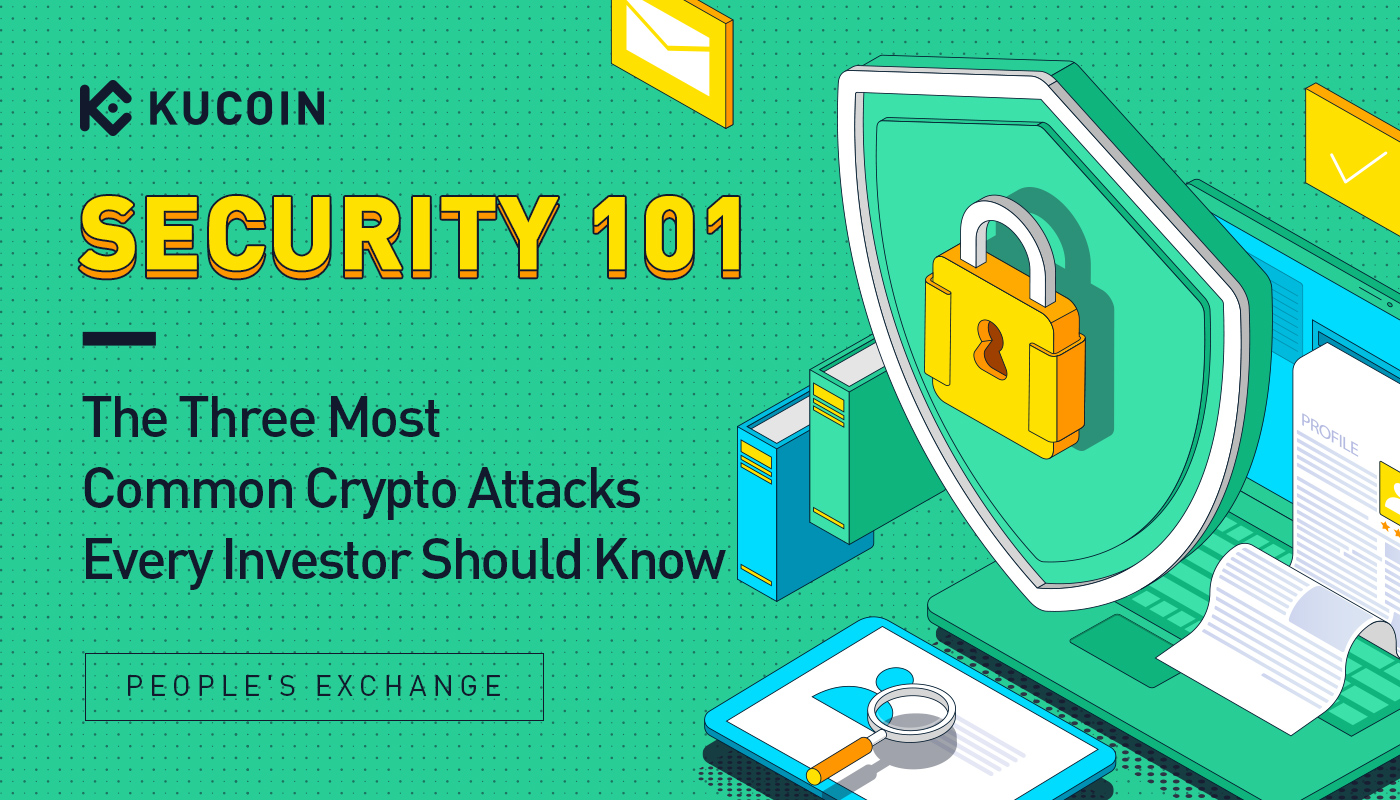Security 101: The Three Most Common Crypto Attacks Every Investor Should Know

Cryptocurrencies and blockchain technology have had a great year nonetheless. After reaching all-time highs last month, we can see a lot of greed and fear in the market as more investors jump on the bandwagon. New investors are desperate not to miss out on the digital gold rush and are rushing to exchanges to buy more crypto assets.
Today, the cryptocurrency market is worth well over $2.5 trillion, with over 13,000 unique digital coins circulating in the market. With how well cryptocurrencies have been doing over the past year, we are seeing a lot of institutional adoption and mainstream adoption.
The emerging-market means that there is an increased prevalence of people without any technical or financial background in the crypto space. This, in turn, increases the number of newbies investing in various coins looking to make big bucks without fully understanding how digital currencies work.
The surging share of people without any technical knowledge only creates more opportunities for crypto scams, malicious attempts, and cybercriminals to scam, steal, and exploit the lack of experience and knowledge.
With the crypto space showing no signs of slowing down, we expect a similar rise in crypto attacks. In this small guide, we will be reviewing some of the most common crypto attacks in the crypto space and how you can stay safe.
What are the most common types of crypto attacks?
Crypto Jacking
Crypto Jacking is something you’ve probably come across one way or the other, and it’s one of the most common crypto attacks in the crypto space. Crypto Jacking is when cyber criminals gain unauthorized access to your devices to mine cryptocurrencies. Since mining cryptocurrencies can take a lot of computational resources, crypto jackers leverage crypto mining on your computers without incurring huge costs.
By not paying for expensive mining hardware or electricity bills, Crypto Jacking allows malicious users to mine for cryptocurrencies without any resources. The most common cryptocurrency to be mined on personal computers is Monero, which attracts cyber criminals thanks to its anonymity and lack of traceability.
Crypto Jacking involves hackers hacking into your devices and installing crypto jacking software. This software then uses your computational resources in the background to mine cryptocurrencies or steal cryptocurrencies from your crypto wallets. The first sign of a crypto jacking software hijacking your device is slower performance and lags in your system.
Hackers often get into your devices by getting you to click on malicious links through emails. Another way these hackers get into your devices is by infecting websites and downloads with scripts that auto-execute once downloaded or clicked on.
In both cases, the script runs in the background as your work. The script uses all of your computational resources to solve mathematically complex algorithms and puzzles, and sends the result back to the hacker.
Although Crypto Jacking software operates like malware, they do not damage your computer or data. All they do is use your computational processing resources to mine cryptocurrencies. The best way to tell if you’re a victim of a crypto jacking attack is by noticing sudden drops in performance, overheating, and high CPU usage.
Crypto Dusting
The Crypto Dusting attack is a reasonably new attack that has been circulating the crypto space. Dusting attacks are easily the most sophisticated attacks on our list. A crypto dusting attack is when hackers and scammers send nominal amounts of crypto assets to hundreds of thousands of wallets to try and break their privacy. They send unnoticeable fractional amounts of cryptocurrencies to a large number of addresses to identify similar crypto wallets.
Hackers then link these addresses and wallets to their respective companies and individuals and leverage this knowledge against their victims through sophisticated phishing attacks or cyber-extortion threats.
Crypto Dusting attacks often occur on the Bitcoin network; however, they have been emerging on Litecoin, BNB, and other cryptocurrencies networks.
You can easily avoid crypto dusting attacks by using hierarchical-deterministic wallets that create new addresses each time you make a transaction, making it almost impossible to trace you.
Crypto Clipping
Crypto Clipping is very similar to Crypto Jacking; however, unlike using your computational resources, Crypto Clipping involves stealing your assets in the process of a transaction through the use of malware that automatically substitutes the intended wallet address with the hacker’s address.
Crypto Clipping works very much like URL redirection, where you click one website and then are redirected to a completely different website. Crypto Clipping malware often resides in commonly downloaded third-party apps disguised as PDF readers, games, or even COVID-19 tracers. Crypto Clipping often works on people that are unaware of how cryptocurrency transactions and technology works.
Crypto Clipping softwares are very sophisticated such that it secretly replaces the wallet address of the intended recipient with the hacker’s address when you’re making a transaction. The Crypto clipping software monitors the victim’s clipboard, where wallet addresses are copied, and then replaces the intended address with the hacker’s address when the user tries to paste the address.
An easy way to avoid this is to make sure you’re sending your assets to the right address and refrain from downloading sketchy apps from the internet.
Closing Thoughts
Despite the increasing influx of users in the crypto space, there has been an equal rise in cryptocurrency scammer incidents and hacking attempts. The rise of scams, exploitation methods, and hacks is a reason enough that you must perform your due diligence and be aware of different types of attacks.
Sign up on KuCoin, and start trading today!
Follow us on Twitter >>> https://twitter.com/kucoincom
Join us on Telegram >>> https://t.me/Kucoin_Exchange
Download KuCoin App >>> https://www.kucoin.com/download
Also Subscribe to our Youtube Channel >>> Listen to 60s Podcast

